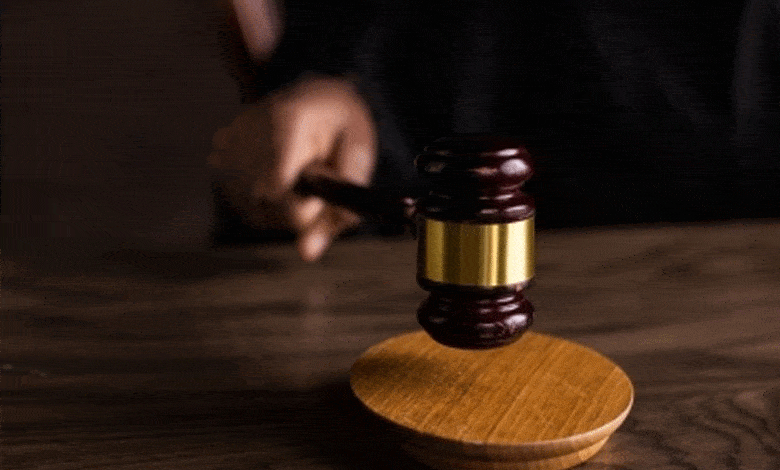Delhi Court to Deliver Verdict on Sajjan Kumar in 1984 Anti-Sikh Riots Case: Here Are the Details
"Delhi court to announce verdict on former Congress MP Sajjan Kumar in the 1984 anti-Sikh riots case today. Get key details on charges, arguments, and case history."

New Delhi: A crucial judgment in the 1984 anti-Sikh riots case against Former Congress MP Sajjan Kumar is set to be pronounced today by a Delhi court.
This case, which has been under legal scrutiny for decades, pertains to the tragic killing of a father-son duo—Jaswant Singh and Tarundeep Singh—in the Saraswati Vihar area on November 1, 1984.
Table of Contents
Key Details of the Case
The judgement will be delivered by Special Judge Kaveri Baweja, following the court’s decision to reserve its verdict on January 31 after hearing additional submissions from both the prosecution and the defense.
The prosecution, led by Additional Public Prosecutor Manish Rawat, has argued that Sajjan Kumar played a pivotal role in instigating the violent mob responsible for the brutal killings. In contrast, Kumar’s defense, represented by Advocate Anil Sharma, has contended that his name was not originally mentioned in the case and that the witness delayed naming him for 16 years.
The court’s decision will be significant, as Sajjan Kumar is already serving a life sentence for his involvement in a separate 1984 riots case, where he was convicted by the Delhi High Court. That conviction is currently under appeal before the Supreme Court.
Arguments Presented in Court
Senior advocate H.S. Phoolka, who has represented riot victims for decades, has consistently maintained that the police investigations into the anti-Sikh riots were deliberately manipulated to protect key accused individuals. He emphasized that these riots were not mere acts of mob violence but a coordinated effort to target the Sikh community, which he classified as genocide.
Phoolka cited the Delhi High Court’s previous judgment in the 1984 anti-Sikh riot case in Delhi Cantt, which described the riots as a “crime against humanity.” He also referenced global legal precedents and the Geneva Convention to support the argument that such cases must be treated with extraordinary seriousness.
In response, defense lawyer Anil Sharma argued that the law of foreign nations does not apply in this case and that the standard legal framework of India should be upheld. He also pointed out that a charge sheet against Sajjan Kumar was prepared in 1992 but was never filed in court, which, according to him, indicates lapses in the investigation rather than Kumar’s culpability.
The Role of the Special Investigation Team (SIT)
The case was initially registered at the Punjabi Bagh police station but was later taken up by a Special Investigation Team (SIT) that was constituted based on the recommendations of the Justice G.P. Mathur Committee. This committee had recommended reopening 114 cases related to the 1984 riots, with this particular case being one of them.
The SIT, in its charge sheet, alleged that Sajjan Kumar had led the mob responsible for the killings and had actively instigated the violence. The prosecution claimed that the accused was directly responsible for arson, looting, and the destruction of property belonging to Sikh families in Saraswati Vihar.
Eyewitness Testimony and Key Evidence
The complainant in the case, whose testimony played a crucial role, had initially provided a statement during the investigation but named Sajjan Kumar only after recognizing his photograph in a magazine approximately one and a half months after the incident.
In her subsequent statements recorded under Section 161 of the Criminal Procedure Code (CrPC) in 2016, she reiterated her allegations, detailing how the mob, allegedly led by Kumar, burned her husband and son alive, looted their house, and injured her and other family members.
Her testimony aligns with the SIT’s findings, which traced material witnesses and recorded their statements during the investigation. According to the SIT, several key witnesses corroborated the complainant’s narrative, strengthening the case against Sajjan Kumar.
Legal Charges Against Sajjan Kumar
On December 16, 2021, the court framed charges against Sajjan Kumar for multiple offenses under the Indian Penal Code (IPC), including:
- Section 147 (Rioting)
- Section 148 (Rioting with deadly weapons)
- Section 149 (Unlawful assembly)
- Section 302 (Murder)
- Section 308 (Attempt to commit culpable homicide)
- Section 323 (Voluntarily causing hurt)
- Section 395 (Dacoity)
- Section 397 (Robbery with attempt to cause death or grievous hurt)
- Section 427 (Mischief causing damage)
- Section 436 (Mischief by fire or explosive substance)
- Section 440 (Mischief committed after preparation for causing death or hurt)
Final Hearing and Anticipation of Verdict
On November 1, 2023, the court recorded Sajjan Kumar’s statement, in which he denied all allegations against him. As the court is set to deliver its judgement today, there is heightened anticipation among riot survivors and activists who have long fought for justice.
Given the significance of this case in the larger context of the 1984 anti-Sikh riots, today’s verdict will play a crucial role in shaping public perception of judicial accountability and justice for riot victims.
Stay tuned for live updates on the court’s ruling and its implications.
